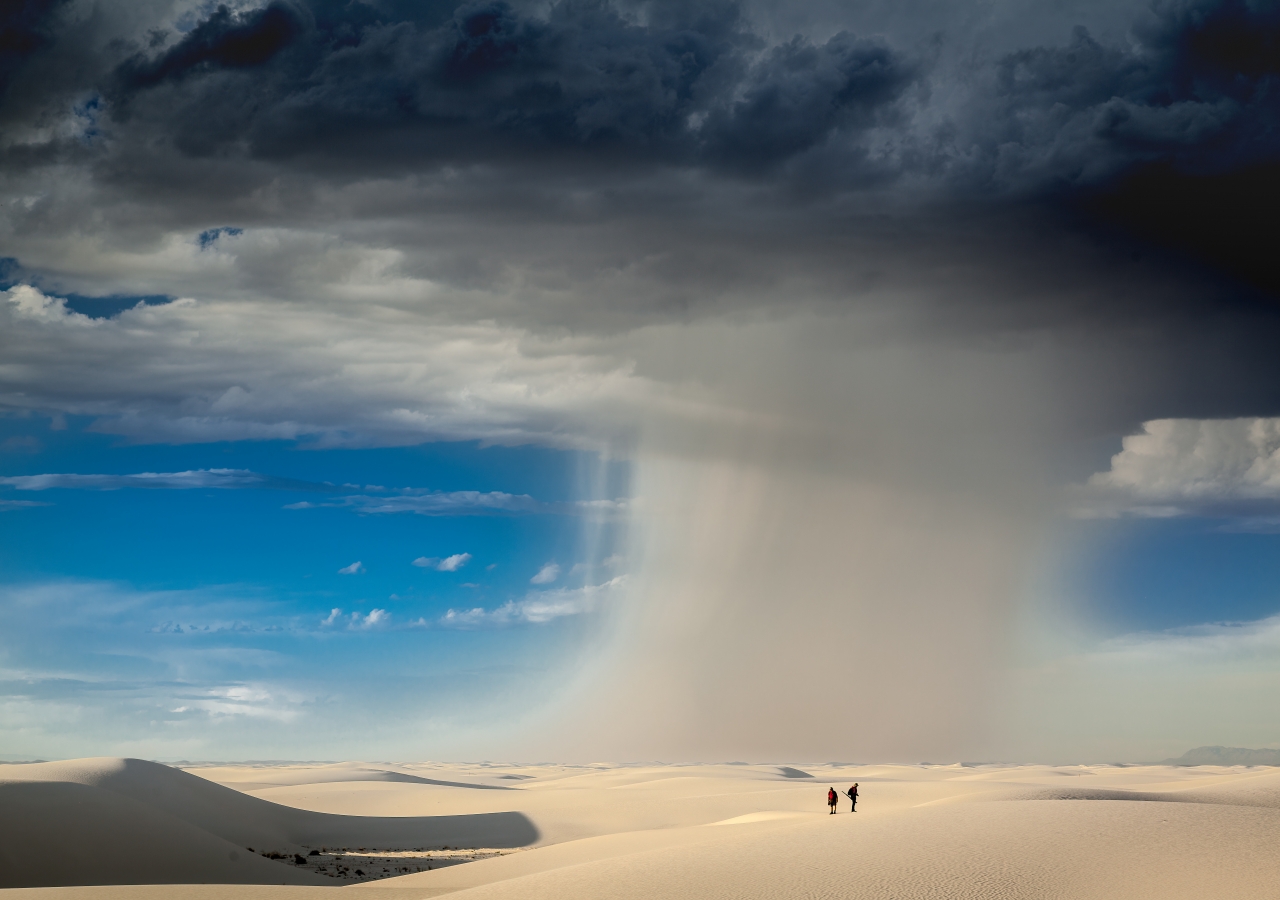THE SANDS: A SUFI PARABLE
A stream, from its source in far-off mountains, passing through every kind and description of countryside, at last, reached the sands of the desert. Just as it had crossed every other barrier, the stream tried to cross this one, but it found that as fast as it ran into the sand, its waters disappeared. It was convinced, however, that its destiny was to cross this desert, and yet there was no way. Now a hidden voice, coming from the desert itself whispered: “The wind crosses the desert, and so can the stream.”
The stream objected that it was dashing itself against the sand and only getting absorbed: that the wind could fly, and this was why it could cross a desert.
“By hurtling in your own accustomed way, you cannot get across. You will either disappear, or become a marsh. You must allow the wind to carry you over, to your destination.”
“But how could this happen?”
“By allowing yourself to be absorbed in the wind.”
This idea was not acceptable to the stream. After all, it had never been absorbed before. It did not want to lose its individuality. And once lost, how was one to know that it could ever be regained?
“The wind”, said the sand, “performs this function. It takes up water, carries it over the desert, and then lets it fall again. Falling as rain, the water again becomes a river.”
”How can I know that this is true?”
“It is so, and if you do not believe it, you cannot become more than a quagmire, and even that could take many, many years; and it certainly is not the same as a stream.”
“But can I not remain the same stream that I am today?”
“You cannot, in either case, remain so,” the whisper said.'” our essential part is carried away and forms a stream again. You are called what you are even today because you do not know which part of you is the essential one.”
When he heard this, certain echoes began to arise in the thoughts of the stream. Dimly, he remembered a state in which he -or some part of him, was it? - had been held in the arms of a wind. He also remembered -or did he? - that this was the real thing, not necessarily the obvious thing, to do.
And the stream raised his vapour into the welcoming arms of the wind, which gently and easily bore it upwards and along, letting it fall softly as soon as they reached the roof of a mountain, many, many miles away. And because he had his doubts, the stream was able to remember and record more strongly in his mind the details of the experience. He reflected, ”Yes, now I have learned my true identity.” The stream was learning. But the sands whispered, “We know because we see it happen day after day: and because we, the sands, extend from the riverside all the way to the mountain.”
And that is why it is said that the way in which the Stream of Life is to continue on its journey is written in the Sands.
Source:
Taken from Idries Shah’s (1924-1996) “Tales of the Dervishes.” This is an oral tradition tale that has been written many times in slightly differing ways. This version of the tale is from Awad Afifi the Tunisian who died in 1870.
The Fruit of Heaven
There was once a woman who had heard of the Fruit of Heaven. She coveted it.
She asked a certain dervish, whom we shall call Sabar: “How can I find this fruit, so that I may attain immediate knowledge?”
“You would best be advised to study with me,” said the dervish. “But if you will not do so, you will have to travel resolutely and at times restlessly throughout the world.”
She left him and sought another, Arif the Wise One, and then found Hakim, the Sage, then Majzup the Mad, then Alim the Scientist, and many more …
She passed thirty years in her search. Finally, she came to a garden. There stood the Tree of Heaven, and from its branches hung the bright Fruit of Heaven. Standing beside the Tree was Sabar, the First Dervish.
“Why did you no tell me when we first met that you were the Custodian of the Fruit of Heaven?” she asked him.
“Because you would not then have believed me. Besides, the Tree produces fruit only once in thirty years and thirty days.”
Anonymous
https://sofoarchon.com/








